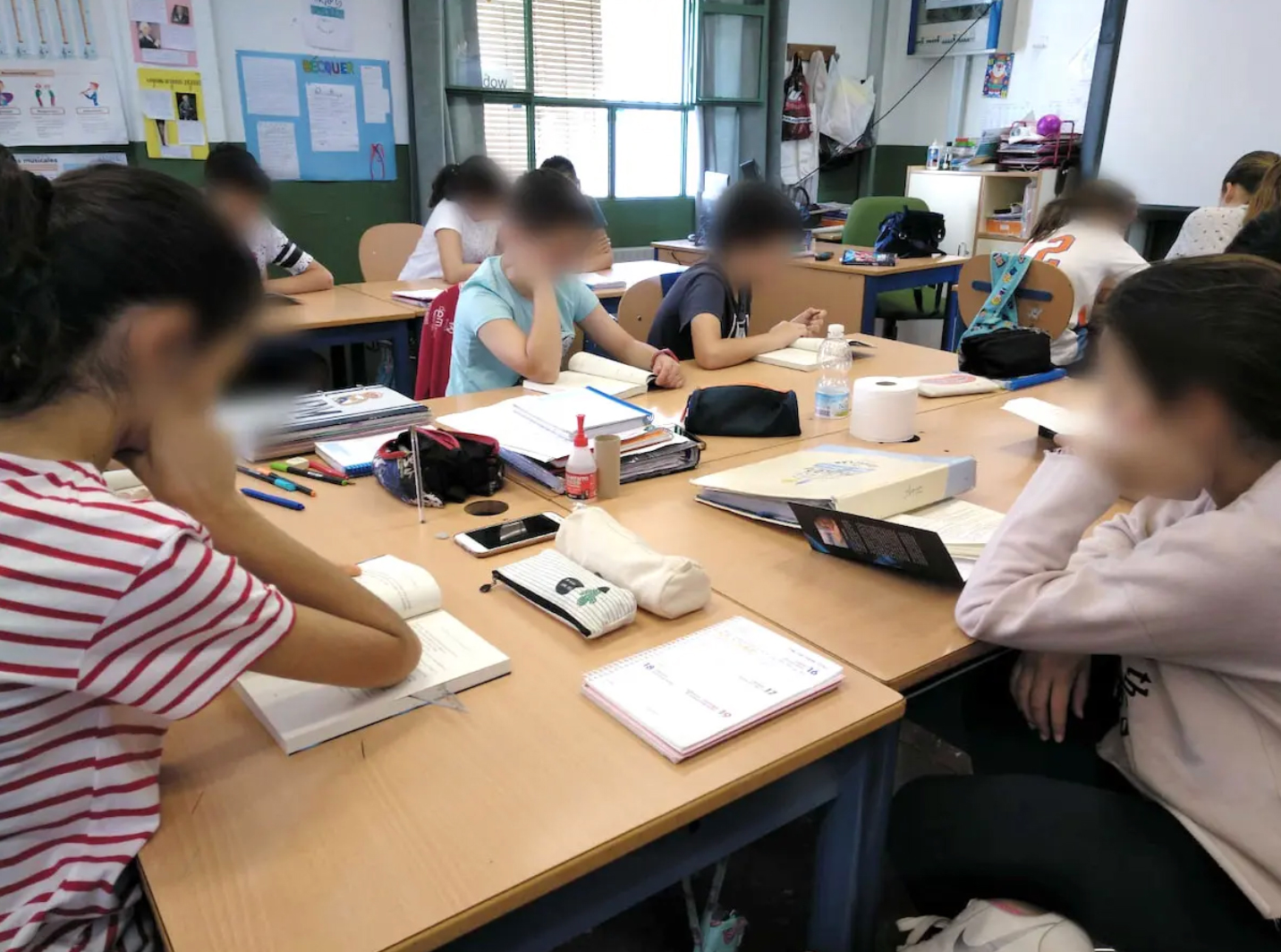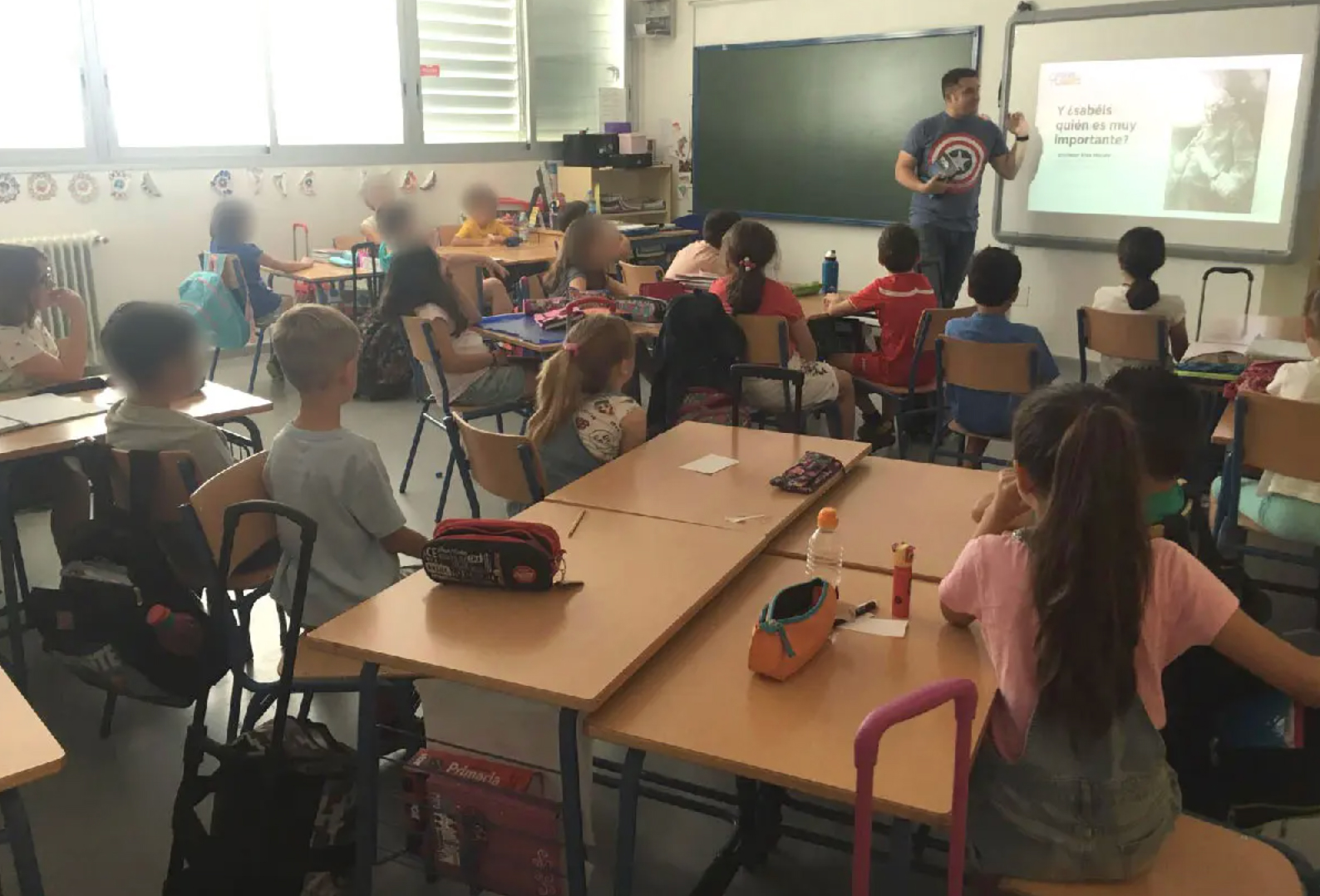I’ve visited some schools to talk about Mara Turing, and I must admit I’ve had some very fun and rewarding experiences. The setup is almost always the same: a classroom full of kids who come to listen to a stranger promising to talk to them about hackers, programming, the internet, mobile phones… and, on top of that, trying to make it enjoyable for them. Quite a challenge!
There’s always a teacher (curiously, never a male teacher…) who has heard about the book and asks me to come and tell her students what this hacking thing is all about. Honestly, I’d feel terrible barging into a classroom like a charlatan and only talking about how great my young adult novel is. That’s why I’ve crafted a speech aimed at telling them about Mara, Noa, and Daniel, but also about…
- privacy on their mobile phones
- security when choosing passwords
- the importance of programming (program or be programmed)
- why they should cover the cameras on their devices if they’re not using them
- how to prevent a hacker from getting into their phones
- why they’re surrounded by devices that “potentially” (and without trying to scare them…) could spy on them
- what information they share on Facebook, Instagram, TikTok, YouTube… or Fortnite.
What strikes me the most is that kids today have more issues with hackers than the White House itself. Yes, seriously. I don’t know if their parents are aware, but it’s rare to find a child who hasn’t had a bad experience with a gadget that got infected with a virus, had a bitcoin miner sneakily running in the background of a free game, or had their Fortnite password stolen. A real mess, indeed.

And that’s why sessions about Mara Turing always turn, at some point, into a sort of meeting of Anonymous Alcoholics where students confess. Many of these problems have happened to them in the privacy of their rooms or even on the sofa they share with their family. But, either out of fear or ignorance, they usually don’t disclose these “attacks” in their surroundings.
Do you know what’s most worrying? Their apparent sense of helplessness. And when you talk to them and explain that there are certain habits and behaviors that would spare them headaches, they usually react with joy.
But what happens if the problem is much bigger than just an app freezing or a slow phone? Kids need information and to know how to protect themselves!
Starting with the importance of STEM (STEAM, STREAM… it’s all the same) and the need to involve women in technology, my speech explains how Mara Turing represents a girl who wants to change things from normality. Mara Turing, Noa Wachowski, and Daniel Karamanou are three kids with the problems and worries of any 11-year-old. And it’s important that it’s “any kid”. They’re not wizards, elves, dwarves, or hobbits (my admiration to all of them, they’re part of my childhood); they’re normal teenagers, the kind of kids living in the world today by the millions. The kind whose lives are being tracked and watched constantly without them realizing it.
When I explain that “program or be programmed” isn’t just about code, a light bulb usually goes off in their heads. I ask them to have critical awareness about everything. If someone asks them to install a mobile app, they should consider why. Nothing more. Nothing less.
I’ll leave you now because I have to keep writing the next book. I’m sure you’re going to love it. More action, more adventure, and, of course, more learning. Oh! And we’re preparing some very interesting videos…

